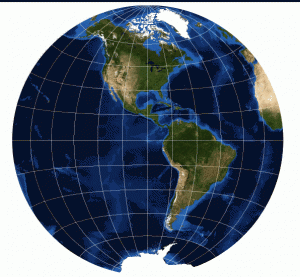I was reading the Miami Herald that we get here in Panama and came across this article written by Bill Richardson, a former governor of New Mexico and special envoy for the OAS. In it he speaks about the importance of the US embracing Latin America. An example of what is wrong up north is the status of the Free Trade Agreement. They have $10 billion dollar add on if it is ratified but they are too busy playing politics. In the heat of the debt ceiling debates here is an example of what played out. “With the U.S. government on the verge of a historic default, the country’s largest business lobbying group took to the halls of Congress last week to press lawmakers to support the Panama Free-Trade Agreement. The U.S. Chamber of Commerce sponsored a “door knock,” with 80 members handing out Panama hats to tout a trade deal with a nation that has a smaller economy than Akron, Ohio. To critics, the Chamber event illustrates what has been a deafening silence from U.S. executive suites on the gridlock in Washington over raising the federal $14.3 trillion debt ceiling.” Well thank God that is over, for now.
Here is the article;
BY BILL RICHARDSON
governor.richardson@gmail.com
Just two months ago, I joined a delegation of 70 international observers in Lima to ensure a free and fair presidential election run-off in Peru. The electoral process worked, and our neighbors to the south are completing a peaceful transition of power. I would argue that this democratic process — led by the Organization of American States — is a vital part of our own national interest in the United States.
Recently, the House Foreign Affairs Committee, upset at recent developments in Cuba and Venezuela, moved to withdraw the United States from the OAS by cutting all financial support. This action could not send a more confusing message to our Latin American and Caribbean friends nor could it come at a more tenuous time for our standing throughout the region.
Ever since Teddy Roosevelt laid the cornerstone to the OAS headquarters with his vision of a pan-American community more than 100 years ago, America has led the way to promoting a forum of nations committed to peace and prosperity. This tradition has continued over multiple generations, with both Democratic and Republican support, because history has proven that the nations of the Western Hemisphere have an immense impact, in terms of commerce and culture, on the daily lives of most Americans.
This American commitment to our neighbors, with the OAS as its keystone, has allowed the region to demonstrate globally the benefits of working for common goals. Through the OAS, the United States and its neighbors have aspired to achieve the hemispheric protection of human rights, the recognition of the rights of women, and the promotion of democratic ideals through the Inter-American Democratic Charter that is without peer in the world, among others.
In the last year alone, the OAS has demonstrated on several occasions the central role it plays in resolving conflicts, defending democracy and protecting human rights. Last autumn, as tensions rose along the border between Nicaragua and Costa Rica, the issue was brought to the OAS where both countries addressed their dispute with words instead of bullets. In Haiti, while the country struggled to recover from a devastating earthquake, the OAS played a critical role in recognizing and reversing electoral fraud and defusing an increasingly tense and potentially violent atmosphere. And in Venezuela, the OAS’s independent human rights arm issued a scathing report shining a bright light on human rights abuses and the systematic thwarting of civil liberties.
Our engagement in the region also has direct consequences on our own citizens. U.S. exports to Latin America have grown faster in the past 11 years than to any other region, including Asia. There are two important free-trade agreements pending in Colombia and Panama. And we must continue to work with regional partners like Mexico and Central America to agree to a hemispheric accord to curb the illicit trade of narcotics, illegal guns and human trafficking.
Nonetheless, some in Congress want to cut ties to the only forum that includes every democratic nation of the hemisphere. However, withdrawing American support would play right into the hands of those who would wish to see U.S. standing diminished.
Other nations around the globe, such as China and Iran, recognize the potential of the hemisphere and are building ties and increasing influence. Additionally, as many of the nations of the region recover from the economic downturn, some have decided to assert their own influence and explore other global ties that could possibly eschew a U.S. presence.
Rather than walk away from these challenges, we should redouble our commitment to the one hemisphere-wide forum that our nation helped create and where we still play a pivotal role.
